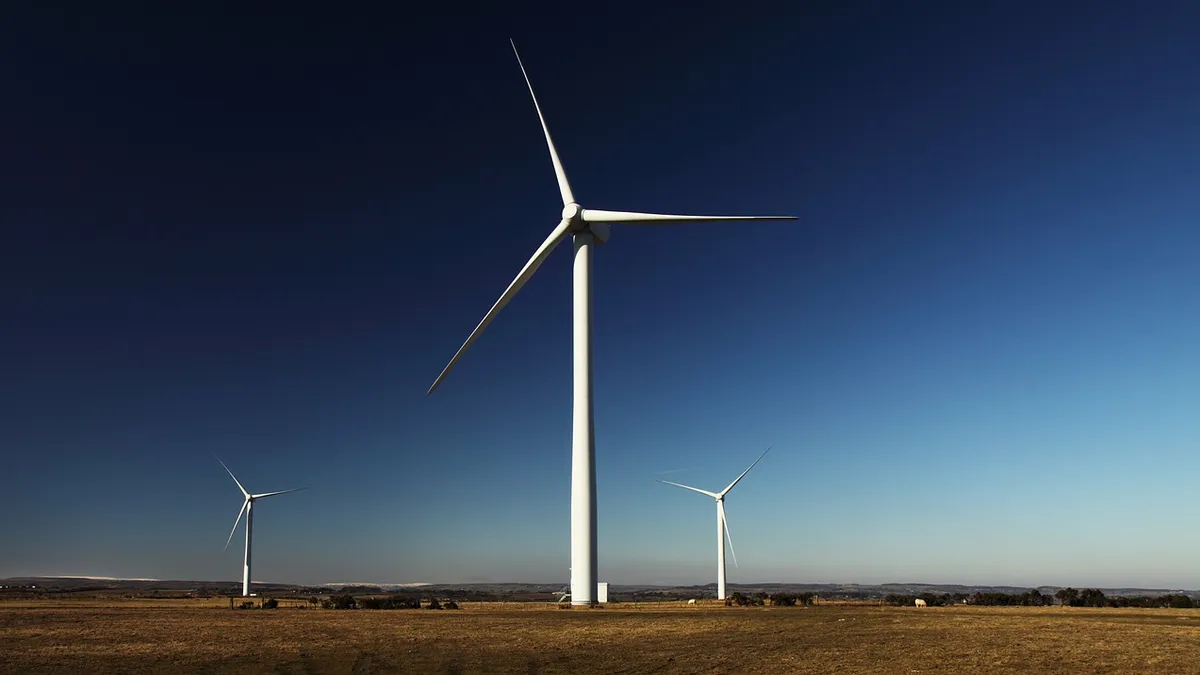Dive Brief:
- The installed price of wind energy is now largely competitive with new coal and new natural gas installations, and wind has contributed about about one-third of all new U.S. generation since 2007, but Wyoming has added no new capacity since 2010.
- Experts say Wyoming, one of the most wind-rich states, remains largely undeveloped because regulatory issues are unsettled and transmission projects that could deliver wind-generated electriciity to load centers continue to face permitting and financing obstacles.
- Additionally, the Casper Star Tribune reports that controversy over avian deaths — especially those of eagles — at wind plants across the West is holding up development as well.
Dive Insight:
Wind energy, especially for states where it is abundant, has come down precipitously in price. Lazard estimates that without subsidizes, new wind costs between $37 and $81 per MWh, while coal comes in at $66 to $151 per MWh and natural gas at $61 to $81 per MWh. But Wyoming, despite being a windy state, hasn't added any new swind capacity in five years due to difficulties siting transmission and controversy over bird dealths, the Casper Star Tribune reports.
A California federal court recently ruled the U.S. Fish and Wildlife Service's decision to offer wind developers a 30-year eagle take permit, which would have given Wyoming developers some long-term certainty, was made without the appropriate environmental review.
Because take permits may now be for only 5 years, investors are likely to be reluctant to commit billions to development. In 2013, Duke Energy paid a $1 million settlement to the Department of Justice for raptor kills at Wyoming wind projects.
The Power Company of Wyoming continues with permitting for a proposed a 3,000 MW project, Pathfinder Renewable Wind Energy continues with permitting for a proposed 2,100 MW project, and sPower continues with permitting for a proposed 80 MW project. The Tribune reports they are in areas not as affected by avian populations.
The American Wind Energy Association says it continues to fight for a more fair avian policy. It is also working for renewal of the industry’s $0.023 per kWh production tax credit before its absence impacts industry growth. Debate is ongoing.














